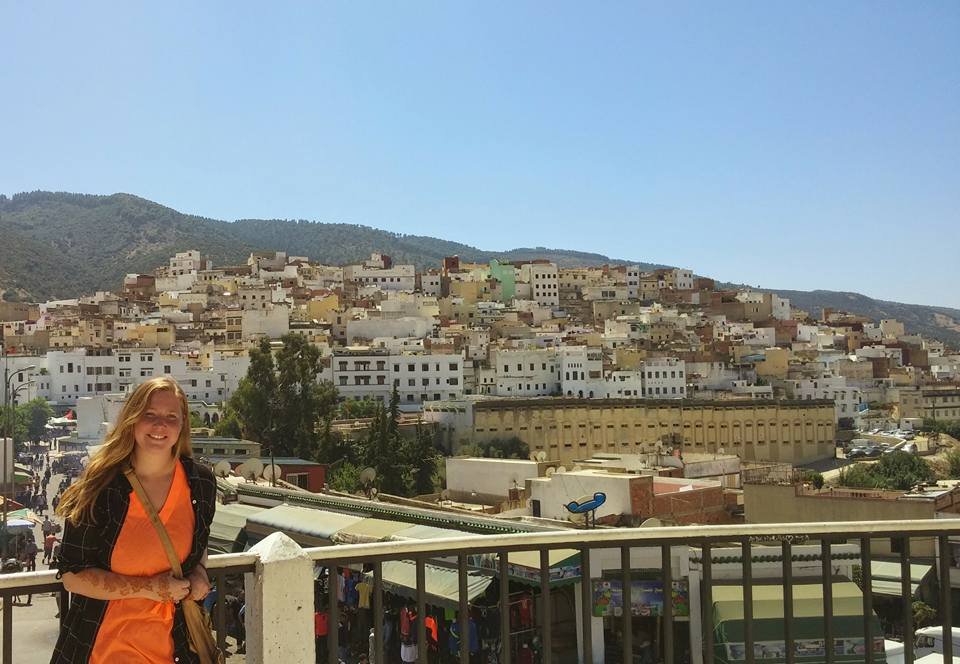
Morocco is polarizing among the travel community, and women in particular have walked away and felt harassed, uncomfortable and angry. Yes, there’s extensive cat-calling and following. It is not a destination that I would recommend to a solo female traveler that is not experienced (although this was my first major travel destination outside of the states; I went with a group, but did travel solo occasionally). But there is a lot to offer culturally and geographically, and the heady thrill of the wildly unknown aspects of Morocco were enough for me to be sold.
This post is an extensive overview of Morocco regarding geography, transportation, food, sexual harassment, and so much more. If you’re planning on going to Morocco, this is the perfect post to brush up on all of the information about Morocco that you’d like to know, all in one spot.
Geography of Morocco
Morocco has a lot to offer: desert in the southwest, the Atlas Mountains in the central area, the Rif Mountains further north, and a ton of awesome coastal cities and towns rich in history. The South is arid and the coastline has a nice Mediterranean climate.
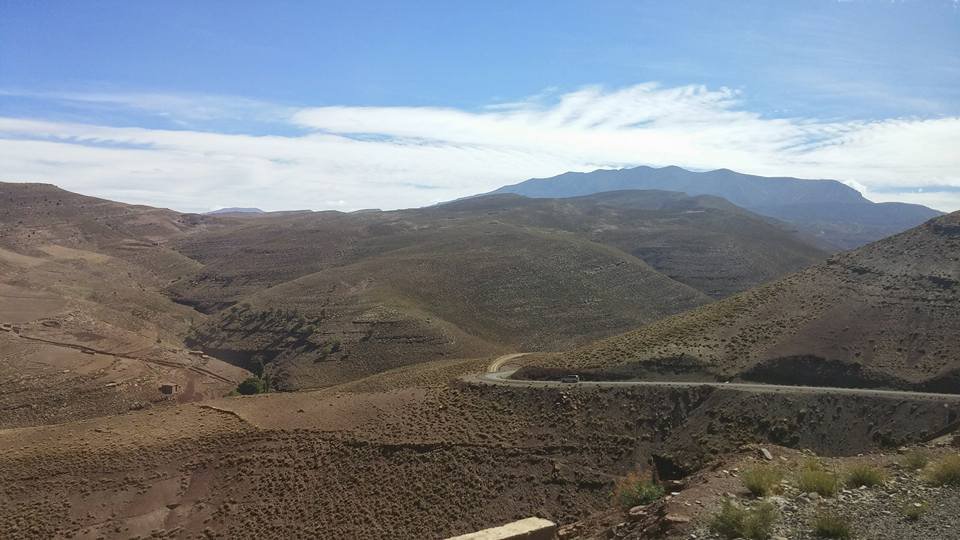
Most cities usually have an old medina (the old city) and a kasbah (the wall surrounding the old city). The medina of Fez is an incredible labyrinth, and is home to the oldest university in the world (also check out the tanneries there!). Coastal cities feature nice beaches (think Tétouan, Tangier, Asila). Chefchouan, the blue sleepy city known for it’s access to weed, is a treasure trove of awesomeness. Casablanca is home to the world-famous Hassan II mosque (no, you can’t go into parts of the mosque if you’re not Muslim – and no, you shouldn’t lie and say that you’re Muslim just to see these areas). Marrakesh has the nightlife and the chained monkeys in the plaza, if that’s what you’re into. Rabat has the ritzy government buildings (like the King’s Palace), and access to the Atlantic Ocean that isn’t flooded with people.
Government
Morocco is a constitutional monarchy, with the current King, Mohammad VI, well-liked and moderate; his policies are largely credited as to why Morocco did not succumb to the Arab Spring movements within North Africa and the Middle East. After the Casablanca terrorist bombing in 2003, King Mohammad VI implemented a series of reforms to help combat extremist terrorism and to promote tolerance. Most notably, he has allowed women to play a larger role within Islam as a mourchidat (‘female guide’). The first 50 mourchidates graduated in 2006, and have to intensively study the Koran, as well as other topics such as sociology and law (a woman mourchidat is required to memorize half the Koran, whereas men are required to memorize all of it). Upon graduation, the mourchidat is assigned to a mosque and provides spiritual guidance and advice, perhaps similar to the role of a priest. Notably, a mourchidat is not allowed to lead prayer; that is still only the imams job.
Additionally, King Mohammad VI was also the first Moroccan king to publicly acknowledge his wife and put her in the spotlight. She does not wear any type of veil.
I was there during an election period for Parliament. Surprisingly to me coming from a somewhat democratic country, I heard a few different Moroccans tell me that they’d actually prefer that the King have more power. Disillusionment with Parliament is high, and people are paid to advertise for candidates (literally people plaster propaganda all over their cars and go around with a loudspeaker talking about the candidate they’re supporting).
Moroccan History
The Amazigh, or commonly known as Berbers, are Native to Morocco. Many still live in rural areas, particularly throughout the Atlas Mountains. There are three distinct Amazigh languages, although the government formed one written language out of the three oral languages, and now has it posted on all signs posted by the government, so you can expect three languages on the vast majority of signs — French, Arabic and Tifinagh.
For more information on the early arabization of Morocco, research the Almohad and Almoravid dynasties.
French Control
Central Morocco was a French protectorate from 1912 to 1956. You can still see today the class divides based off of language: private schools teach subjects in French, and provide students with a separate Arabic class. A few children I met in Rabat I literally could not communicate with because they didn’t know a lick of Arabic: their parents had chosen to focus on French. And unless you choose to study Islamist studies at university, French and English are almost exclusively spoken in university classroom settings. So this is a huge setback for families that grow up only speaking Arabic.
Independence from France was agreed to in 1955 and initiated gradually; one of the conditions was to establish a constitutional monarchy. In this regard, Morocco was saved from an exhaustive and bloody war for independence which their neighbor Algeria was not.
Spanish Control
Spain also held a sliver of land on the northern part of Morocco, as well as a whole swath of the desert, now known as the Western Sahara. Spain relinquished the majority of the northern section at the same time France did, but decided to hold onto the Western Sahara, as well as the northern cities of Ceuta and Melilla. Ceuta and Melilla are still held by Spain, but Morocco claims they should be a part of Morocco (anyone seen the awesome telenovela La Reina del Sur? The majority of that takes place in Melilla). The Western Sahara is considered a conflict zone by the United Nations, but Morocco also claims it as a part of Morocco. In fact, be careful about what map you’re bringing with you — it is illegal to bring a map to Morocco that has the little dotted line on there designating the Western Sahara as not being a part of Morocco.
Languages
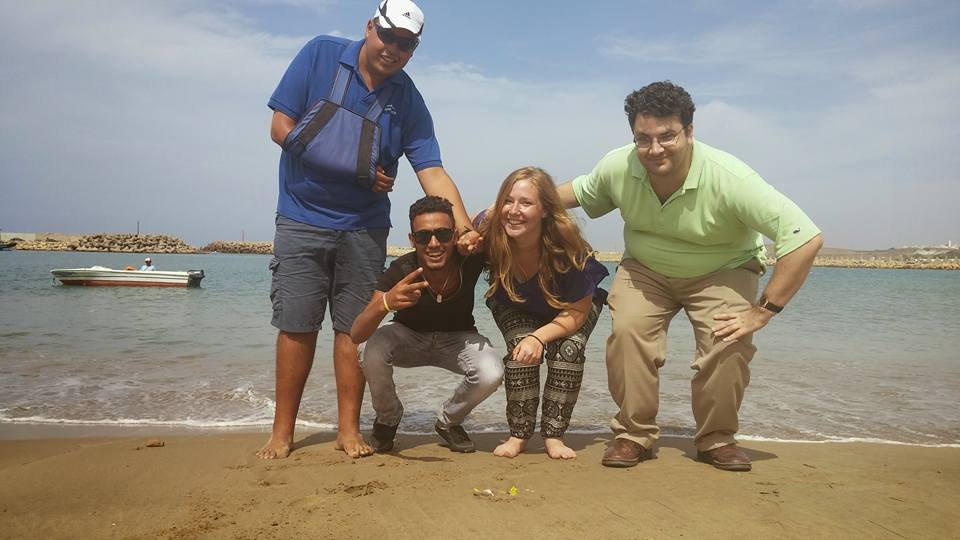
Hanging out with Moroccans on the beach in Asila, we had to constantly switch between French, Spanish, Darija and English for all parties to understand, as we had no common language.
One of the coolest things about Morocco is how multilingual everyone is. You will get people that will come up to you and try five different languages just to try to talk to you.
The most widely spoken language is Arabic, but if you know Modern Standard Arabic you might still be really confused and not understand anything (if you want some reasons as to why you should learn Darija, check out this blog post). Darija is Morocco’s colloquial Arabic, and is said to be the form of Arabic that is farthest from Standard Arabic.
I learned that the best way to get respect while shopping and bartering was by using Arabic. If you know French and are more fluent speaking French than Arabic, by all means speak what you can communicate. But if you really want to impress a shopkeeper, spend some time learning Darija and give it a whirl. The first two (or three or eight) times they might just stare at you with a puzzled face, really attempting to understand you but utterly baffled: it’s okay. Any form of Arabic is really hard.
You can find a decent amount of English speakers in cities, particularly touristy cities such as Marrakesh. Even if people really don’t know English, they’ll shout out English phrases to you like, “I love you!” and “Will you marry me?”
In the northern parts of Morocco Spanish is very prevalent, so you can get by by speaking Spanish as well.
And if you’re really venturing out there, particularly in a rural area, you may want to invest in learning one of the local Amazigh languages (tamazight, I believe, is what’s commonly spoken largely throughout the Central Atlas Mountains).
Religion
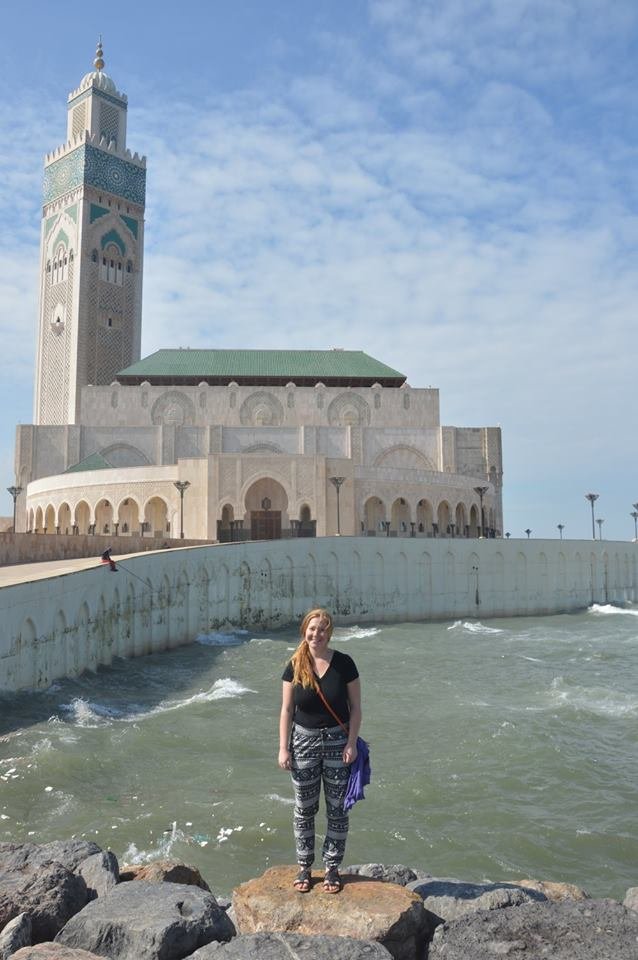
Morocco is a Muslim-majority country. You will undoubtedly be woken up by the call to prayer, which happens five times a day. Morocco is quite tolerant when it comes to religion, and actually very proud of its history of having a protected Jewish population.
If you’re from a Western country like me, most Moroccans will think you’re already doomed to a life of sin, so they probably won’t waste their breath trying to convert you (seriously — we had a few different Moroccans tell us this exact thing). However, if you want a lecture on religion and the merits of Islam, then say that you are agnostic, or really aren’t sure — if they see you wavering, they may think it’s worth their while to try and convert you (this happened to my friend and I on a train ride from Rabat to Tangier. The conversation started out pleasant, and then turned into a lecture on why we should convert that we had to listen to for the duration of the train ride).
Religion & Dress in Morocco
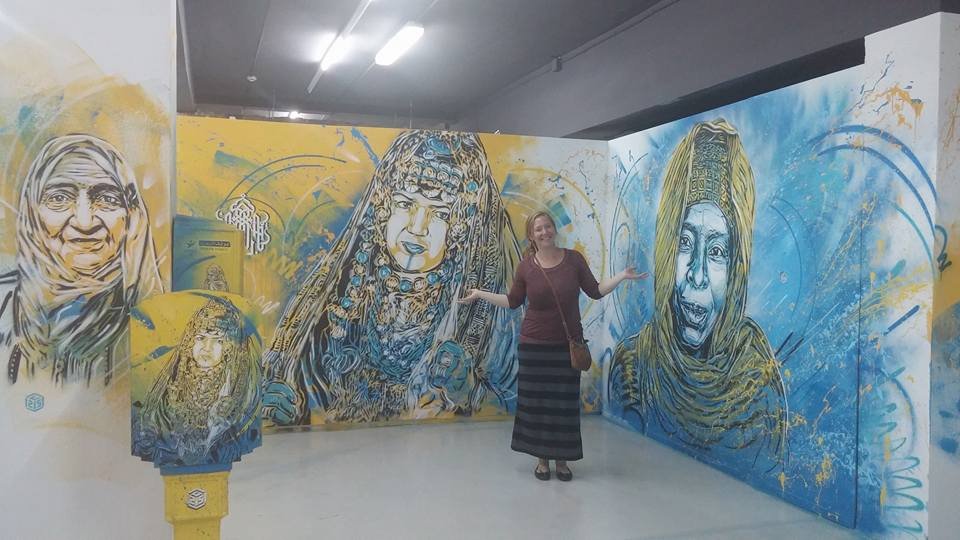
Muslim women do not have to wear a hijab or a burka, although many do (the burka is much less common, especially in cities). I found young Moroccan women in Rabat to be quite stylish and fashion-forward, perhaps due to the influence of French fashion, so there are plenty of fashionable Western-style pieces sold that are modest (particularly in the Agdal neighborhood of Rabat, the Frenchie area).
The traditional dress for both men and women is the jellaba, a long, flowing dress that is perfect for the hot environment. Men tend to wear jellabas on Fridays, their Holy Day. You’ll also see people lining up outside of mosques and praying outside on Fridays.
In general, if you’re a woman traveling in Morocco I would recommend to wear clothes that are somewhat modest. I wore jeans and either long or short-sleeve tops; you don’t have to walk around wearing frumpy clothes all the time, but it is respectful to cover up slightly more than you normally may. I will say my experience on the beach wearing a bathing suit was fine — some Moroccan women wear full-body bathing suits, or just don’t go into the water, but I was not endlessly harassed at the beach. In Tangier, we befriended the lifeguard, who was polite enough and amusing. On a separate beach when I visited my first host family’s beach house, I had no issues at all, although I was with my Moroccan host mom and her two kids.
Food & Drink
Morocco is the land of mint tea. You will be offered tea at shops and at homes. It’s made with mint leaves and either green or black tea, plus a very hefty amount of sugar. If you’re lucky, the sugar comes on the side. Traditionally, the person serving the tea pours the first glass of tea (sometimes amusing his observers by pouring it from the highest point from the glass as possible), and then puts the first glass back into the teapot. Then it’s ready to be doled out.
Couscous and tagine are the two most popular dishes; couscous is served on Fridays for lunch, and is a whole family affair. Tagine is basically a type of crock pot, where you can throw whatever you want in there and cook it up. Usually it’s a whole chicken or cuts of lamb and veggies. I was there during Eid Al-Adha, or the Slaughtering of the Sheep, so we ate tons and tons of lamb. The first night we ate the inside components; quite frankly, I don’t know what I ate and I don’t know if I want to know. My roommate and I were a little turned off when she crunched on something that only could have been cartilage, but we powered through. They say it’s healthy for you, right?
Sandwiches are common in the more touristy areas, as is pizza. Salads are generally cooked vegetables served cold (potatoes, corn, etc) — I thought it was weird at first, but I liked it. Pasta is not done so well; when my host mom made pasta, they put in a crap ton of cardamom pods.
Morocco also has a large amount of cafes serving up espresso drinks and sweet treats such as macaroons. Cafes pretty much always have an outdoor area, and is dominated by old men smoking cigarettes, drinking coffee and chatting. A lot of cafes have free Wi-Fi, which I loved to take advantage of. Try ns ns, a coffee drink which gains you some respect as a foreigner when you order it and is also delicious.
Liquor
When it comes to alcohol, since Morocco is a Muslim country, stores cannot sell liquor on their shelves for everyone to see. In Carrefour, a chain grocery store, you have to go down into the basement to go get the liquor with an employee. There are also places in the old Medina where you can buy liquor. Usually clubs that make you pay an entrance fee include at least one drink for free. Alcohol at bars and clubs is not cheap, so expect to pay $7-8 for a bottle of beer or $10 for a fancy drink like a long island.
Music & Nightlife
I can’t speak for much of Morocco here, but I will speak for Rabat: there aren’t a whole ton of clubs and bars, but the ones that are there are fun! They stay open very late (around 4:00 a.m.) and play some of the coolest music ever. The fusion of so many different cultures in Morocco is real: you’ll hear French pop, Reggaeton, U.S. bangers, and fun beats all in one night. Honestly, the most fun I have had at a club is in Morocco, and it’s because they play anything and everything. As long as the beat is good, that’s what matters. By far my favorite place was Al Yacout (La Cabane Bambou-Al Yacout). A lot of African flair, with a lot of beats without singing and sometimes live bands, it was a blast.
Transportation
Morocco is a country that’s very easy to navigate via public transportation.
Train
Train is by far the most convenient for doing long trips. There are train stations in all the large cities, and they run consistently throughout the day. You will always be told which track to go to on your ticket, and the time the train arrives — your train will not be early. I made the mistake of thinking my train was five minutes early since it was on the right track, but I had gotten on the wrong train completely (thankfully the conductor and a helpful old man assisted me in getting back on the right track – he did not kick me off, just told me how to get to a transfer train from where we were going).
Taxi
Taxis and grand taxis (4+ people) are in abundance. Grand taxis are white and are used for longer trips as well as for larger groups. You gotta negotiate with the grand taxis. Usually it’s a flat price to get to wherever you’re trying to go, but a little bartering doesn’t hurt (although be respectful of course). Regular city taxis should all have meters that they start once you get in the car. You then pay the taxi driver whatever the meter says by the end of the trip. Make sure the meter is on! There are some taxi drivers that will purposefully not switch it on so that they can negotiate at the end and get a larger amount from you if you’re a tourist, although this was very rare during my experience. There are also times where you have to negotiate, like late hours in the night if you’re coming from a club. Sometimes the taxi drivers are all in cahoots waiting outside the club, and so none of them are going to turn their meter on for you. They’re going to charge you more because they can, so barter some and then suck it up and get your drunk ass in the taxi and pay the $5 they’re asking from you (yeah, it’s not like you getting ripped off is really you getting ripped off, comparatively).
Bus
Buses are probably the cheapest option of travel, but if you can take a train I’d take the train. I took a bus with some friends from Chefchaouen, and it was bumpy and we went quite fast around turns and it was not very pleasant (buses in Peru are either the same or worse, but there’s no train option so suck it up, buttercup). It got us from point A to point B and allowed us to leave a few hours later, so it works when you need it.
Hitchhiking
We also sometimes used hitchhiking tactics to get home within the city of Rabat. Especially when it gets later, there are certain areas where there are next to no taxis that come around. We never had a bad experience with this, but as I’m sure you’re aware it could go south. It seems odd juxtaposed with the lewd cat-calling and harassment that’s common in Morocco, but the guys that dropped us off didn’t even ask for our numbers, let alone try anything. Again, this isn’t advisable per se but we did utilize this as well.
Human Rights
Overall, Morocco has come a long way in regards to many different human rights concerns. There are, however, continuing problems with rights for the LGBTQ+ community, disabled persons, and women.
Disability Rights
Moroccan Parliament passed a law in 2015 on the rights of disabled persons, right before I arrived. The bill fell short of what human rights organizations wanted from Morocco, but has helped in granting accessibility to businesses and promoting specialized education for disabled students. For more in-depth information, check out the Committee on the Rights of Persons with Disabilities report on Morocco here.
While I was there, there were quite a few beggars, largely concentrated in the wealthier Agdal neighborhood of Rabat, and the vast majority of them were disabled and/or women with children. Sometimes the children go around selling little packets of Kleenex since toilet paper usually isn’t provided in bathrooms.
One friend lived with a host family that had a disabled child: the child was brought out that first night for introductions, and then she never saw the child again. It appears that she was kept in a back room and never went out.
People with disabilities are still highly stigmatized in Morocco. Access is still limited; we saw some self-constructed “ramps” (I guess for wheelchairs?) that were rickety, to put it nicely. Disabled women face the double burden of also being women.
LGBTQ+ Rights
Participating in same sex is still illegal in Morocco.
Of course, regardless of that there seems to be a thriving underground network, at least within Rabat. While we were out and about, it was as if people just knew when someone was gay; they would use simple signals, a wink or a hand gesture, and things would be understood.
Public affection between men in the form of holding hands and touching is, on the contrary, normalized. It wasn’t weird to see two men holding hands on the street. They were super touchy while talking to each other. So although being LGBTQ isn’t allowed, the masculine concepts that I see in the U.S. isn’t as present there. This may perhaps be due to the fact that there is a disbelief in gayness at all; so if men can’t be gay, well, why not hold hands?
Women’s Rights
The Moroccan Parliament passed the Family Code in 2004, which raised the age of marriage for a woman from 15 to 18. It also improved women’s rights in regards to custody or children and divorce, although they still face major obstacles in filing for divorce. It also did not touch inheritance, so women cannot be beneficiaries of inheritances. Another law was passed in 2016, after I had already left, about combating violence against women; read more about it here from the Human Rights Watch.
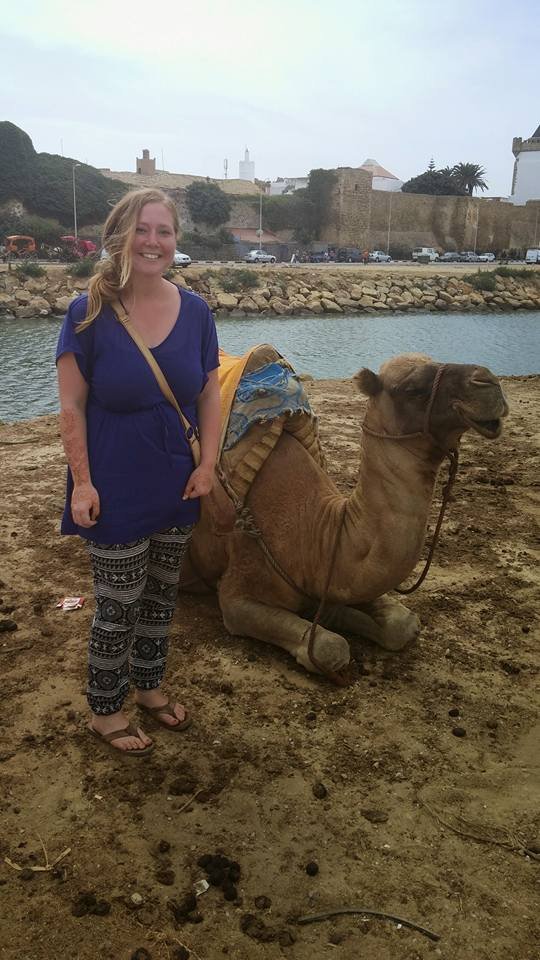
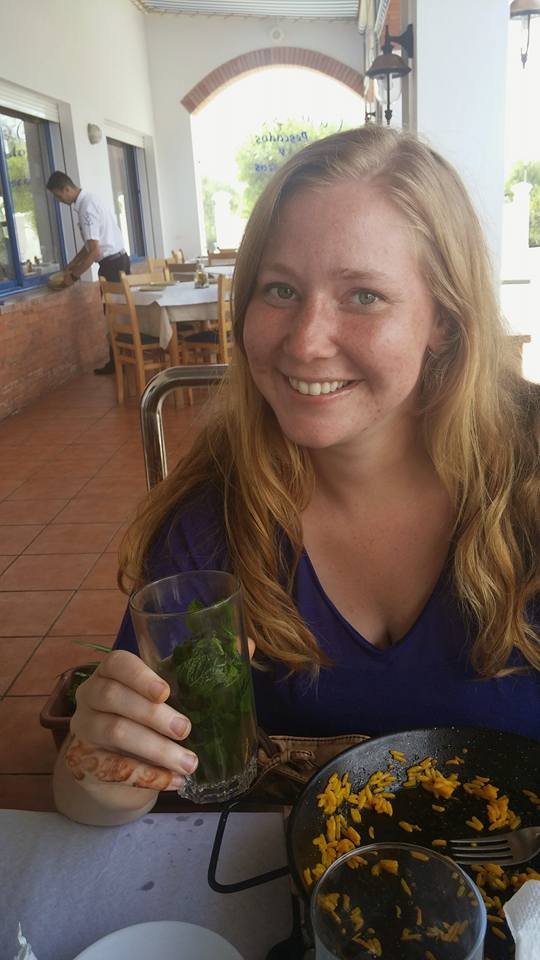
Harassment in Morocco
I have seen many posts and articles now about women who have traveled to Morocco and had a terrible time due to severe harassment. This is not okay. There are many times I advocate for cultural respect when being in someone else’s country, but it’s never okay to physically touch a woman, catcall, say lewd things, follow women, etc. That being said, there are many countries (and many places in the United States and European countries as well) where this is prevalent, not just Morocco.
Here’s my experience:
I was only touched once, in Fez, and someone grabbed my butt. I have no idea who; we were in the crowded Medina, but I certainly felt it. It’s obviously shitty, but not something that I haven’t experienced in the states as well.
I was followed multiple times. I was living in Rabat, and so there were times where I would walk alone. There were men that followed me and consistently berated me for not talking to them. I take myself as a pretty friendly person, and there were plenty of Moroccans that I talked to, but sometimes while walking I just didn’t want to be bothered. It’s also just creepy to be followed.
One time when I was putting minutes on my flip phone at a corner store (you have to have the shopkeeper enter in your phone number in this little system thing to reload money this way), the shopkeeper literally wrote down by number and proceeded to call me over and over again (at the very least I wasn’t charged for these calls; you’re only charged outgoing calls and texts). This also happened with two West African migrants that I had given my phone number to just to converse; they called me over and over and over again. So, I don’t know how much of a Moroccan thing this is. Some of it is lack of understanding: when I tried to talk to one guy, he literally didn’t understand why I wasn’t answering. He kept calling me because I wasn’t answering.
I would also get cat-called and yelled out by pedestrians as well as people in cars and on motorcycles. This would happen alone and in groups.
Ways to Mitigate Sexual Harassment
One way is to travel with a Moroccan or Moroccans. When I was with my host family or with a group of Moroccan friends (or just one) this was basically all cut out. If that’s not an option, I found ignoring the cat-calls as well as the people following you is best. Eventually, they’ll become bored. If you engage, usually they think your accent is super funny and they actually start laughing at you (which made me want to freak out even more).
I met a ton of really funny and awesome Moroccan men, so it doesn’t mean to be scared of all men there. I was younger when I went to Morocco, so I took risks that I may not take now if I went there again.
On the upside, I was never harassed by any of my taxi drivers or any waiters that served me. When I did travel by myself, I was helped out by the train conductor when I got on the wrong train; by a random male passenger, who literally led me to the right train when we got off; by a taxi driver, who recognized me from before and helped me find a hotel when I missed the last train and had to stay overnight; and by the man at the hotel, who gave me directions and places to see and also called up to my room to make sure I was okay (although I guess some people might find that creepy, but I think it’s general hospitality at hotels there). So, again, there are plenty of okay men in Morocco, so keep an open mind if you do decide to go. And, if you’re young, find men that are going to university: many of them know English and will be eager to be a language partner and guide you around the city. But beware: they will blow up your phone. It isn’t always about being creepy; there does seem to be a different sort of phone etiquette there. It’s not okay to just ignore someone, so if you do they might think that you’re in danger and call you 20 times. It’s endearing but also slightly suffocating.
Final Thoughts
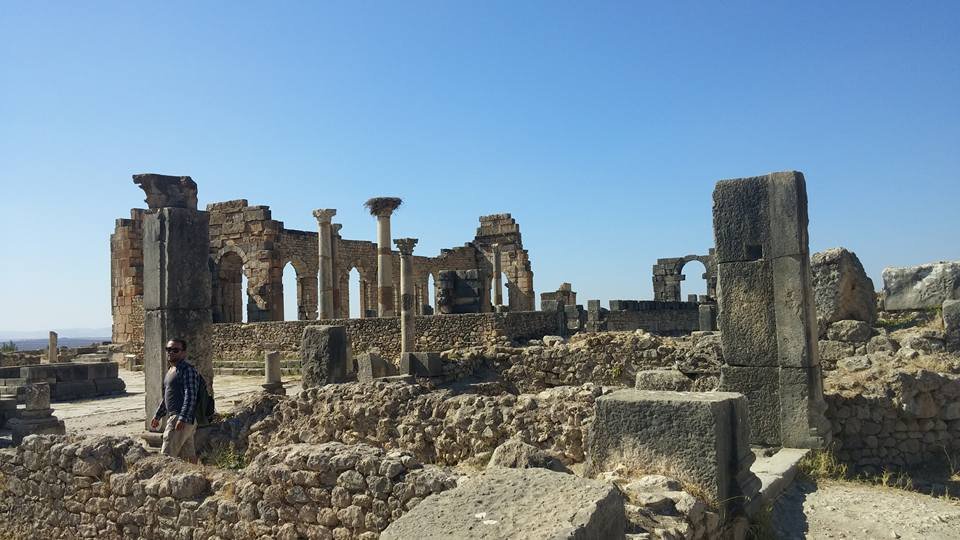
I would never trade my trip to Morocco for anything. Even though my two different host families were a little funky, I met amazing people, had some weird situations happen, visited multiple different cities and areas, and also used it as a gateway to do some quick stopovers in Europe (Barcelona and Dublin; RyanAir has incredibly cheap budget flights within Europe and Morocco).
Liked this post? Pin it!

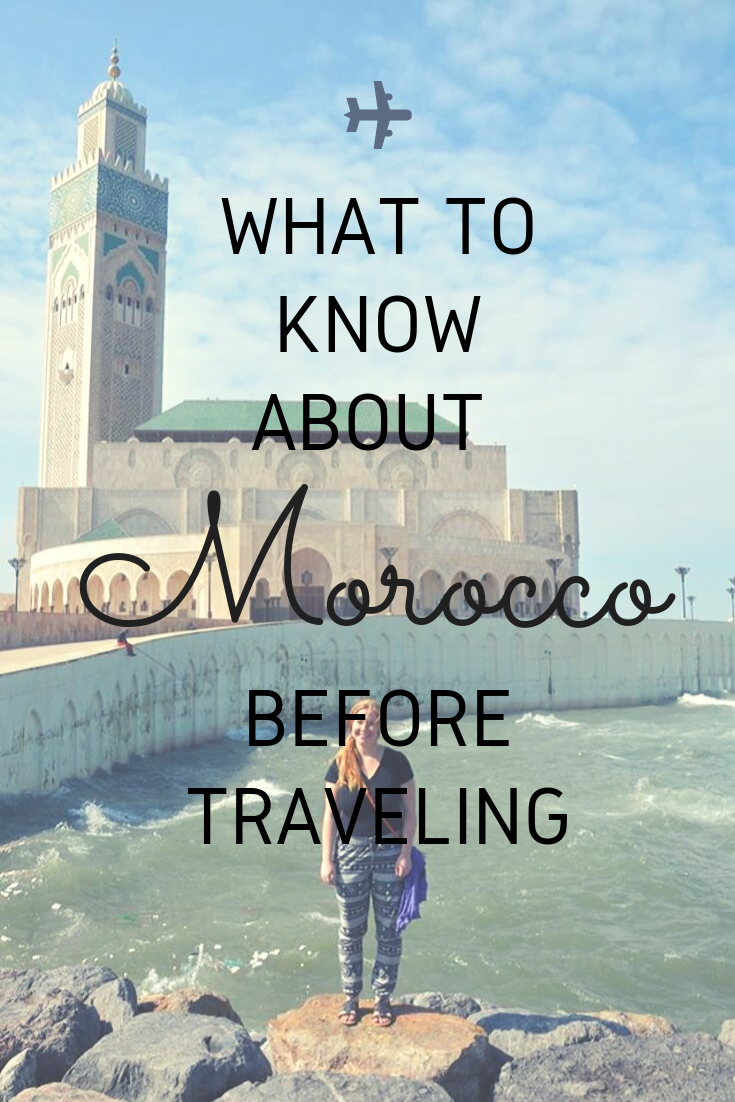
Subscribe to receive Snook Outta Water’s monthly newsletter with exclusive updates and content.
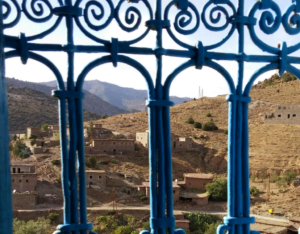
Leave a Reply